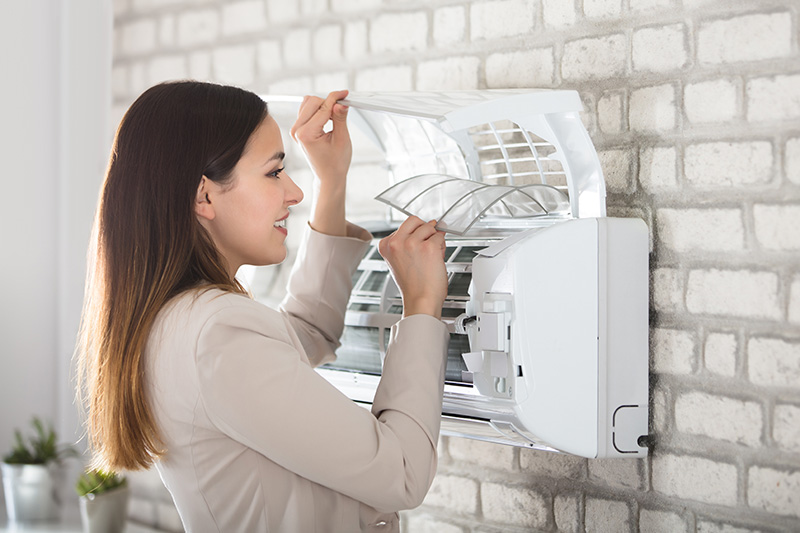Indoor air quality refers to what’s in the air that circulates in your home at any given time. It’s something to focus on since you spend a lot of time indoors, especially in the cooler months of the year. This is one of the reasons to consider testing the indoor air quality of your home. Plus, odorless gasses like radon and carbon monoxide can cause serious health risks. Allergens and other irritants can be problematic as well. Poor indoor air quality can even affect your HVAC system.
The good news is there are ways you can test your home’s air. You want to get a better idea of what steps you may need to take to improve the air quality in your home. We go over your testing options and the basics of indoor air quality below.
Things That Can Affect Your Home’s Indoor Air Quality
There are many things that reduce the quality of your indoor air at one time or another. This can include cooking, smoking odors, allergens, and airborne mold spores. Other things can affect your home’s comfort and indoor air quality include:
- Air that’s too dry or too moist
- Dust, mold, and other airborne irritants that can live in your ducts and spread through the home
- Circulation issues with the air in your home
What You Can Do to Test It
A simple and effective way to test your home’s indoor air quality is to use monitors designed for this. Buy monitors that test for what concerns you most. If respiratory issues are a concern, use monitors for allergens and pollutants. Another step to consider with testing is to do a radon test. You can do some of these tests, but others are more long-term.
Combination radon and carbon monoxide detectors can also help with regular monitoring. This is especially important since these are colorless and odorless gasses. If not detected early, these gasses can be dangerous. It can even kill you.
Signs You Should Be Testing Your Indoor Air
How often you’ll need to test your indoor air quality depends on if you’re noticing any issues. For instance, poor indoor air quality could cause respiratory issues or allergy symptoms. Other signs suggesting it’s a good idea to often test your indoor air include:
- Poor ventilation or circulation
- Signs of mold on surfaces
- Lingering odors or a musty scent in the air
- A heating or cooling system running more often to circulate air and maintain comfort
- Having an older home that could have materials releasing volatile organic compounds
Call Us Today
Call Thornton Heating Services to help improve your home’s indoor air quality. We can inspect your HVAC system to see if there are any HVAC issues. This includes looking at the air quality, filtration, or circulation. Contact an HVAC professional from Thornton today. Schedule an HVAC inspection or discuss your indoor air quality concerns with us.

